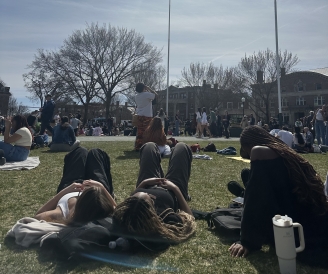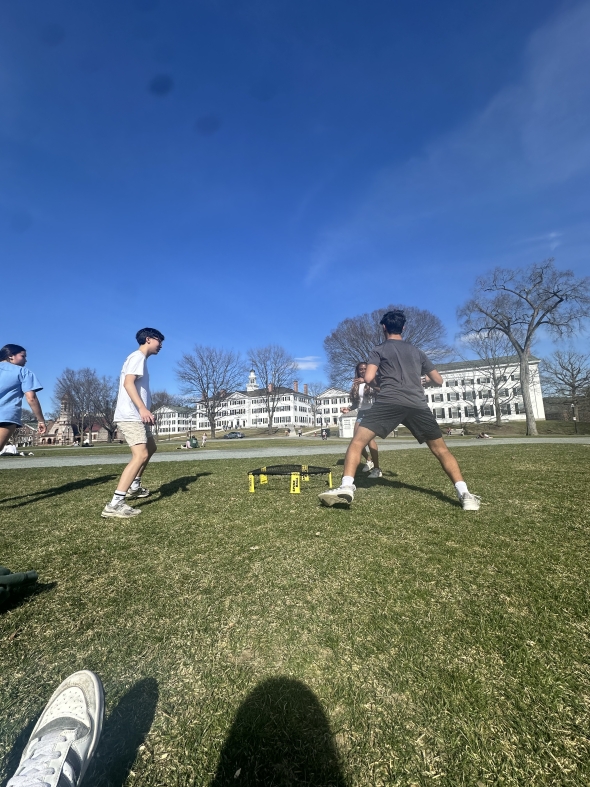

Arianna Dunkley

You are here

Eclipse Into Spring
When the moon moves in front of the sun and obscures our vision of it, this is known as a solar eclipse. A total solar eclipse occurs when the moon completely blocks the sun's light. These are uncommon occurrences that are only seen for brief periods of time in certain locations. On Monday, April 8th, northern New Hampshire was in the total scholar eclipse's Path of Totality, a view that granted people 98% visibility of the moon blocking the sun.
Days leading up to the eclipse, the community looked around for proper eyewear to protect their eyes from the eclipse. At Dartmouth's Nelson A. Rockefeller Center for Public Policy, students were able to retrieve eclipse glasses at no cost. A few classes were moved to Zoom or rescheduled on another day's x-hour. Each course planned by the Dartmouth College Registrar includes an extra, optional period called the x-hour, in addition to the normally scheduled class times. For that course only, the x-hour is set aside in the normally allotted classroom or on Zoom, although on a different day and time.
During the day of the actual eclipse, there was a tent outside on the Dartmouth Green (the focal point of campus) that also provided free eclipse glasses, pretzels, pastries, water, and other refreshments. Students placed picnic blankets and their jackets on the grass of the Green, some playing volleyball and others playing spike ball. When students don't have their own equipment, they are able to freely rent volleyballs and spike ball nets from the front desk at Collis.

Between 3:25 p.m. and 3:30 p.m., the campus looked up at the eclipse through their glasses to see most of the moon covering the sun. Outdoors, the light seemed dull, and the sky slightly darkened. When northern New Hampshire witnessed 98% visibility, the partial eclipse enthralled the community, bringing everyone in Hanover outside and providing a lasting impression of a really extraordinary natural occurrence.
Posts You Might Like


Here's a list of some things I'm looking forward to this fall!


This blog post is dedicated to my mom, the heart of who I am today—and my time at Dartmouth.


Read on to learn about the Dartmouth Outing Club's Surf Club and my adventure to the Atlantic.


A blissfully warm break in the Northeast.


If you're like I was—staring at your closet wondering what "essentials" actually means—here is what I packed, what I'm grateful I brought, and what I now know you can leave behind.


What orientation is like for first years at Dartmouth!


New England's most iconic clock tower, captured from every angle and in every season! From sunrises to snowfalls, here's Baker Tower in all its glory. A visual love letter to Dartmouth's most timeless landmark.


When it came time to figure out where I'd be living for the summer, I wanted to try something different...
